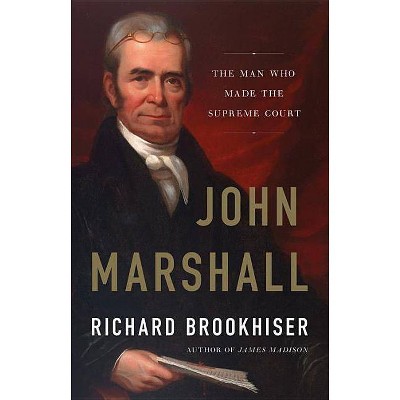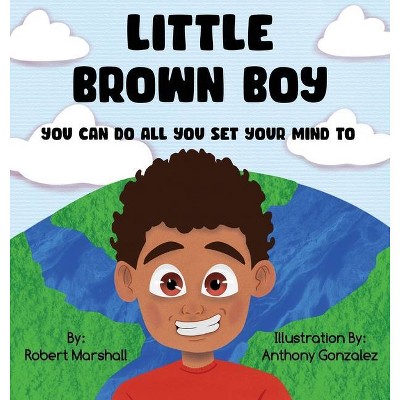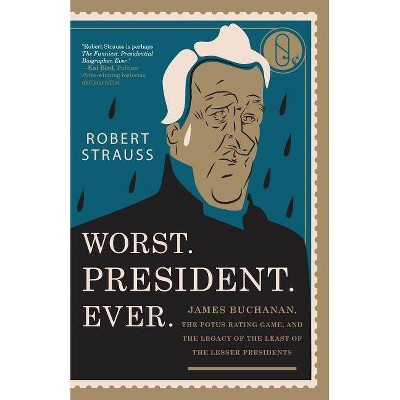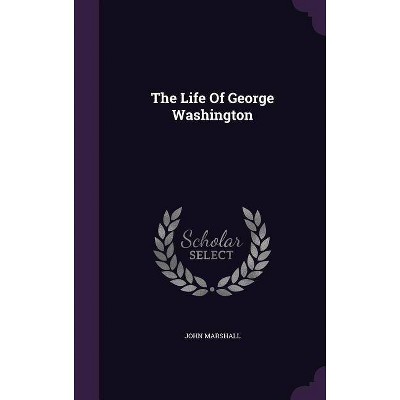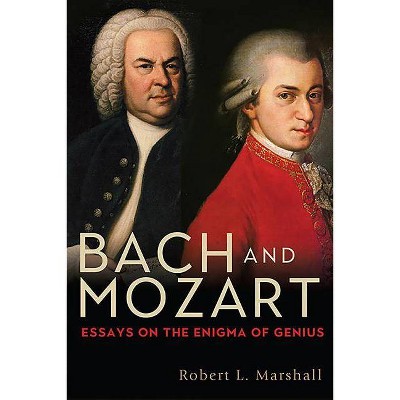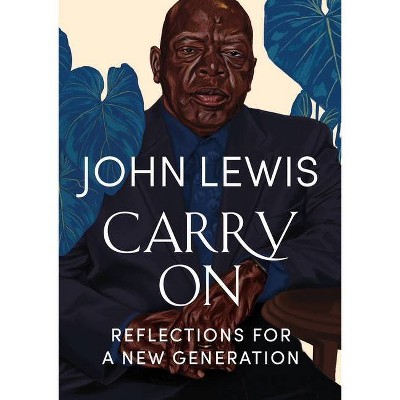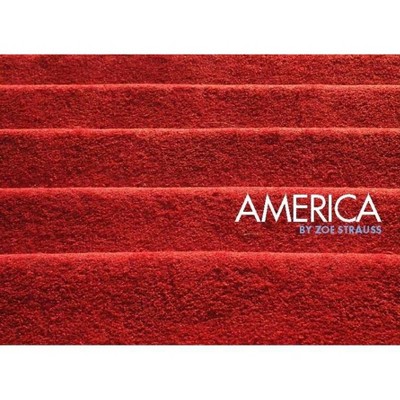John Marshall - by Robert Strauss (Hardcover)
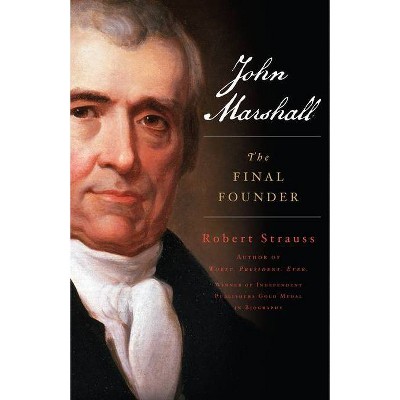
Similar Products
Products of same category from the store
AllProduct info
<p/><br></br><p><b> About the Book </b></p></br></br>Not only was John Marshall one of the Founding Fathers of the United States, what he did as the Chief Justice of the Supreme Court was not just significant, but the glue that held the union together after the original founding days. When Marshall took it over, the judiciary was considered not very important at all. By the time Marshall left, the judiciary was considered co-equal to the other branches of the federal government.<p/><br></br><p><b> Book Synopsis </b></p></br></br>Eighteenth- and 19th-century contemporaries believed Marshall to be, if not the equal of George Washington and Benjamin Franklin, at least very close to that pantheon. John Marshall: The Final Founder demonstrates that not only can Marshall be considered one of those Founding Fathers, but that what he did as the Chief Justice was not just significant, but the glue that held the union together after the original founding days. The Supreme Court met in the basement of the new Capitol building in Washington when Marshall took over, which is just about what the executive and legislative branches thought of the judiciary. John Marshall: The Final Founder advocates a change in the view of when the "founding" of the United States ended. That has long been thought of in one or the other of the signing of the Constitution, the acceptance of the Bill of Rights or the beginning of the Washington presidency. The Final Founder pushes that forward to the peaceful change of power from Federalist to Democrat-Republican and, especially, Marshall's singular achievement -- to move the Court from the basement and truly make it Supreme.<p/><br></br><p><b> Review Quotes </b></p></br></br><br>"Entertaining historical tidbits within a fine short biography." "Active until late in the Andrew Jackson administration, John Marshall (1755-1835) was the last of his generation still in high office. The only founder who outlived him, James Madison, was long retired. Son of a small Virginia landowner, Marshall served several years in the Continental Army during the Revolution. After studying law, he became an influential figure in the conservative Tidewater establishment and a Federalist. Together with Madison, he worked hard to persuade Virginia to ratify the Constitution, which it did, narrowly. George Washington offered him several jobs in his administration, but he declined. He traveled to France on a diplomatic mission under John Adams, who appointed him secretary of state in 1800 and then chief justice in 1801, two months before leaving office. This annoyed the incoming president, Thomas Jefferson (already an enemy); at the time, however, the Supreme Court was not a powerful body, so he didn't make an issue of it. Despite exceptions such as Stephen Budiansky's Oliver Wendell Holmes (2019), biographies of judges rarely make for gripping reading. Though not on that level, journalist and historian Strauss' interpretation is solid, stressing that Marshall's vigorous leadership elevated the court to a co-equal branch of government and gave it the power (not mentioned in the Constitution) to invalidate state and federal laws. The author examines Marshall's landmark legal accomplishments, but he also digresses into sections on a host of intriguing historical ideas. After mentioning that Marshall was considered a potential presidential candidate, Strauss inserts a long chapter describing a dozen Americans who yearned to be president but failed--e.g., Henry Clay, William Seward, William Jennings Bryan, Adlai Stevenson. At his death, Marshall became a mythical figure. Strauss devotes a chapter to other leaders who attained mythical status, from Washington to Kennedy. Readers concerned with the present makeup of the court may be reassured to learn about the worst justices of the past."-Kirkus<br><br>About Worst. President. Ever.: "It's ironic that Pennsylvania's only President, James Buchanan, is almost universally proclaimed as our worst. His bumbling performance as President belied the fact that he had perhaps the best previous experience that would qualify him to serve in the Oval Office--as a State Legislature, a Congressman, a U.S. Senator, an Ambassador to Russia and Great Britain, and Secretary of State. In this book, Robert Strauss details the Buchanan presidency in an entertaining and humorous fashion, and also takes potshots at the concept of ranking our presidents. It is a must read for those interested in the history of the presidency."--Edward G. Rendell, former governor of Pennsylvania "Authors who want to teach us the secrets of the best are a dime a dozen. Only Robert Strauss could show us what we have to learn from the worst. Worst. President. Ever. is a tour de force--entertaining and edifying in equal measure."--Kermit Roosevelt, Professor of Law, University of Pennsylvania "Count me among those media personalities who've been solicited to engage in our national parlor game: Ranking American Presidents. You know the drill. We reflexively offer Abraham Lincoln and George Washington as among the best of American presidents, and then, depending upon contemporary bias, toss in Ronald Reagan or maybe cite the abbreviated tenure of John F. Kennedy. But at the bottom of the list, there's rarely debate. Rather, near-unanimity that America's worst chief executive was the only Pennsylvanian to inhabit the White House, James Buchanan. Now comes Robert Strauss with Worst. Present. Ever., which demands that we justify our pre-conceived opinions on Buchanan's tenure. Perhaps history, in the absence of scholarly analysis like that which has been shown on Buchanan's brethren, has judged No. 15, arguably the most credentialed candidate ever to assume the presidency, too harshly. I'll not give away the insight and analysis. Suffice it to say that Strauss makes his case in a manner to be appreciated by both serious historians and modern day politicos. This treatment of a critical piece of Pre-Civil War history will leave readers engaged, entertained, and better equipped to justify their next ranking of Buchanan's true place in American history."--Michael Smerconish, television and radio host<br><p/><br></br><p><b> About the Author </b></p></br></br>Robert Strauss has been a reporter at Sports Illustrated; a feature writer for the Philadelphia Daily News; a news and sports producer for KYW-TV, then the NBC affiliate in Philadelphia, and the TV critic for the Philadelphia Inquirer and Asbury Park Press. For the last two decades, he has been a freelance journalist, his most prominent client being the New York Times, where he has had more than 1000 by-lines. He has taught non-fiction writing at the University of Pennsylvania since 1999 and been an adjunct professor at Temple University, the University of Delaware and St. Joseph's University as well. He is the author of Worst. President. Ever. among other books. He lives in Haddonfield, New Jersey.
Price History
Cheapest price in the interval: 22.99 on November 8, 2021
Most expensive price in the interval: 22.99 on December 20, 2021
Price Archive shows prices from various stores, lets you see history and find the cheapest. There is no actual sale on the website. For all support, inquiry and suggestion messages communication@pricearchive.us

